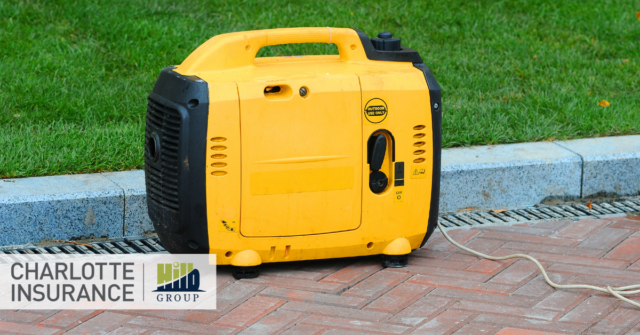After a storm, when the power is out, especially in summer, your home gets miserable fast. No cold A/C. Spoiled food. And no one can charge a phone or turn on a light. That’s why generators are growing in popularity with many homeowners.
Once the power goes out, you can at least have a little bit of power until electricity is restored. But if you’re not careful, your generator can cause more problems than whatever caused the power outage.
Safe generator use is extremely important because unsafe use can easily lead to three major hazards: electrocution, fires, and carbon monoxide poisoning.
Here’s what you need to know to use your generator safely when the power is out.
- Read the instructions. Whether you have a portable generator or a whole-house model installed, read the materials that are included. You’ll find valuable information inside, and it’ll likely answer questions you’ll have in the future.
- Keep your generator outside and at least 15 feet away from windows. Having it inside or too close to a window can easily lead to carbon monoxide poisoning.
- Place your generator where it can stay dry: on a dry surface and underneath a canopy or awning. When possible, avoid using your generator in rainy, wet weather.
- Disconnect power to your home before hooking up your generator for power. If you don’t, the energy from the generator could backfeed into the utility lines.
- Properly ground your generator to prevent shocks and electrocution during use.
- Turn your generator on before you plug in your appliances or equipment.
- Once you plug everything in, then turn on your appliances and lights one by one to avoid overloading the generator.
- Plug appliances and other equipment the generator will power directly into the generator. Use heavy-duty, outdoor safe extension cords for your appliances.
- Never plug a generator into a wall outlet. If you want your generator connected to the main source of power in your home, you’ll need to hire an electrician. Without proper training and experience, doing it yourself could lead to a fire.
- Make sure you have enough fuel for your generator. This is a combination of learning your generator’s rate of fuel consumption and knowing how much fuel you can safely store at your home or business.
- When you need to refuel, turn your generator off and let it cool down completely.
- Keep your children and pets away from the generator while it’s running. It becomes very hot during use and may burn someone who touches it.
- Keep your generator well-maintained and inspect it regularly for damage like cracks and leaks. You can also have your generator regularly serviced to keep it in good condition.
Having a generator to use after a storm or when the power is out is convenient and makes it easier to shelter in place. But not following basic safety precautions can lead to further tragedy. Make sure you know how to safely operate your generator before you use it.
Before any bad weather or natural disasters take the power out, make sure you have enough home insurance coverage to weather any storm. Contact Charlotte Insurance today to ask questions about your current policy or for a quote on a new one.

